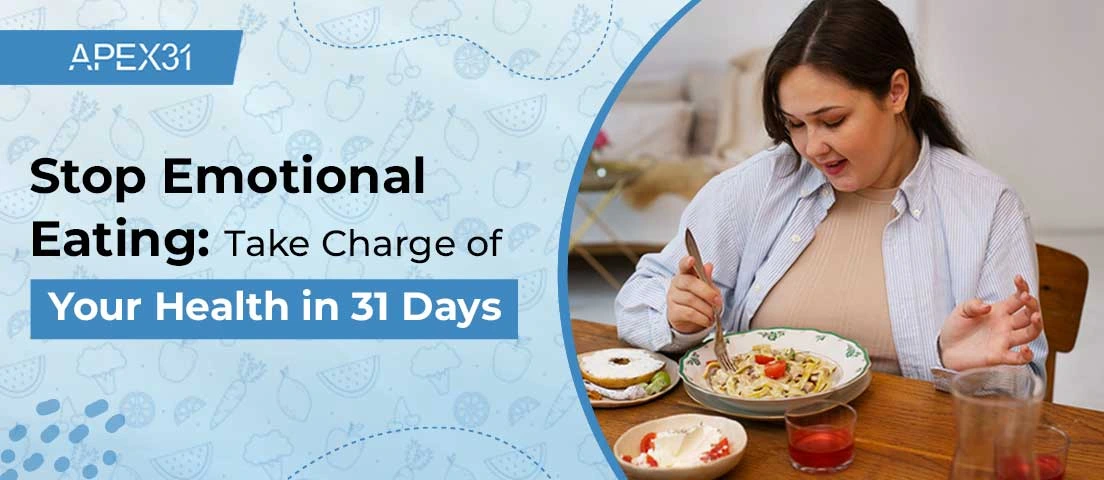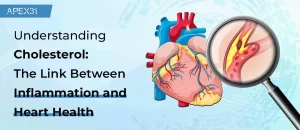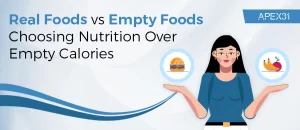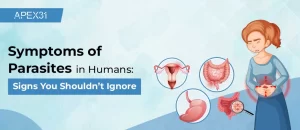Stop Emotional Eating: Take Charge of Your Health in 31 Days

Do you find yourself reaching out for snacks or chocolate whenever you feel stressed or melancholic? You are not alone! Many of us turn to this classic move. But do you ever realize that this doesn’t happen out of hunger, but to soothe our uncomfortable emotions? This emotionally driven habit of eating is known as emotional eating, and it can quietly take control of your habits and health. So before this pattern becomes a long-term struggle, why not take charge yourself? It’s not that hard! In this blog post, we will help you create a 31-day plan to break out of unhealthy emotional eating patterns and develop mindful eating tips. So, let’s get started!
What Causes Emotional Eating?
It’s very common for people to feel the urge to eat when they deal with difficult emotions. Eating like this, in response to your emotions, is prevalent among many people. This happens because our bodies need an energy boost to survive that we get from the food. So, it makes sense to eat as it stimulates your reward system and makes you feel better. There is nothing inherently wrong about it until you develop an unhealthy pattern. Because when this starts happening, too often, and you don’t have other ways to deal with your emotions, it can create problems like weight gain, low self-esteem, and even guilt and shame.
According to research and studies, almost any emotion can trigger your urge to eat. This may be financial worries, relationship issues, work-related stress and even health issues. People with a history of strict dieting are more likely to develop a habit of emotional eating.
Sometimes, general comorbidity or internal factors can also lead to emotional eating. These issues include:
- Lack of awareness
- Not able to regulate your emotions
- Abnormal cortisol levels
- Lack of ability to understand, process or describe your emotions
How to Stop Emotional Eating?
Recognizing that you are eating too much due to overwhelming emotions is a crucial first step towards stopping emotional eating, as many people only realize this much later in life. Once you realize you have fallen victim to emotional eating, here is how you need to deal with it without stressing yourself even more:
Start Journaling
Understanding your emotions, habits, and lifestyle can play a key role in stopping emotional eating. Eating when feeling stressed can occur naturally. So, when you begin understanding how you feel when you start doing specific types of things, you have better chances of changing those things.
That’s how journaling helps you identify the patterns. It helps you learn what triggers your urge to eat when dealing with tough emotions. It tells you how often it happens and what type of emotions trigger your cravings, like is it anger, loneliness or anxiety? You have to keep a journal of what you eat when you feel those emotions, how frequently this happens, and how you feel after eating.
When journaling, be sure to note the following:
- All the instances when you ate without feeling physically hungry.
- Whether you ate immediately or waited a few minutes before eating.
- Any efforts you made to distract yourself while eating.
As you start to explore these things, you will find out a lot about your emotions and eating habits within just a week.
Finding a Way to Cope
After exploring the findings, it’s time to act upon them. You need to start changing the ways you react to the emotions that lead to eating without actual hunger. For example, if it’s stress that causes you to eat, then you need to change the way you deal with it. You need to understand that it is stress that demands your active attention, so think about all the things or activities that you can do to relieve yourself, other than eating.
Similarly, if you find through journaling that you eat when you feel bored, you should find ways to fill your free time with something productive that gives you an energy boost.
It will take a lot of patience and practice to shift your mindset from relying on food, but keep experimenting with different activities.
Practice Mindfulness
Mindfulness has been proven to have numerous mental health benefits. It is highly effective in curing anxiety and keeping your emotions under control.
Mindfulness is all about practicing to stay in the moment you are in. If negative emotions like stress and anxiety trigger your cravings, then mindfulness can help you stay calm. Here is how you can practice it:
- Sit in solace and breathe mindfully
- Listen to the guided meditation
- Identify the tension points and try to relax
- Take a moment to ground yourself by noticing your surroundings
- Let each sense help bring you into the present moment
Get Enough to Eat
You are more likely to experience cravings when you are not eating regular, balanced meals. That is why it is important to provide your body with the nourishment it needs through sufficient and well-balanced food, as your body depends on it to function properly. Also, the meals you eat should bring you satisfaction. Therefore, beyond simply focusing on healthy eating, you should make an effort to diversify your meals and avoid compromising on taste.
Conclusion
This is your roadmap to overcoming emotional eating without putting your body under stress. You do not need to feel shame, and there is no need to judge yourself. Simply begin with the practices outlined in this blog post. They can greatly support you in achieving your goal of ending emotional eating.
It is important to remain positive throughout your journey. Negative thinking can have adverse effects on your mental health and may interfere with your efforts to make lasting, healthy changes in your lifestyle.
Once you begin journaling, recognizing true physical hunger, nourishing yourself with a balanced diet, and practicing mindfulness, you can break free from the toxic cycle of emotional eating without being harsh to yourself. With consistent effort, this transformation is possible within just 31 days.



